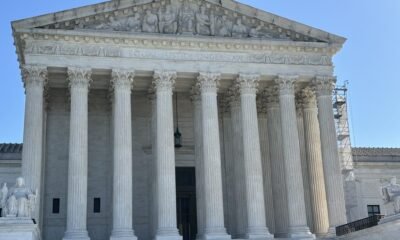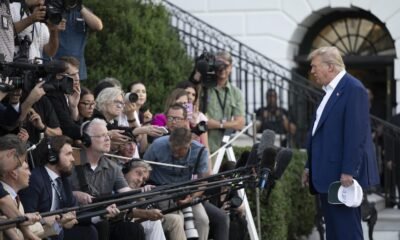Business
Trump’s Health Appointments: A ‘Team of Opponents’ Rather Than Rivals

President-elect Donald Trump’s selection of candidates for federal health agencies has ignited potential conflicts within his administration, particularly concerning public health strategies. His choice for the Department of Health and Human Services (HHS) is Robert F. Kennedy Jr., a figure known for controversial opinions that diverge from traditional scientific consensus.
The nominees share varied stances on critical issues like abortion, vaccine safety, and COVID-19 responses—a divergence destined to create tensions. For instance, while some nominees affirm the established safety of vaccines, Kennedy has long propagated unverified claims linking vaccinations to autism. This fundamental divide hints at a “team of opponents” scenario within health agencies, as noted by Michael Cannon, director of health policy studies at the Cato Institute.
The situation raises the question of whether nominees will feel pressured to align with Kennedy’s views to advance their careers within the HHS. Amesh Adalja, an infectious disease specialist, pointed out that dissenting perspectives may not be welcome, potentially stifling scientific discourse among officials.
Kennedy’s leadership as chair of Children’s Health Defense highlights his commitment to addressing ultra-processed foods and chronic diseases. If confirmed, he would steer HHS, which wields a substantial budget exceeding $1.7 trillion, while also influencing crucial appointments across various health organizations.
Internal conflicts are anticipated, particularly regarding Kennedy’s pro-choice stance on abortion, which conflicts with Dave Weldon, Trump’s nominee to lead the CDC and an avowed opponent of abortion. Weldon’s position may complicate federal policy on abortion, especially if the CDC pursues research that could provoke state-level resistance.
The discourse on vaccines remains contentious; Weldon has, like Kennedy, expressed skepticism about their safety, in stark contrast to Trump’s intended FDA commissioner, Marty Makary, who endorses vaccine efficacy. The American Academy of Pediatrics maintains strong support for the recommended childhood vaccination schedule, emphasizing community health protection.
Kennedy has reassured that no vaccines would be removed from public access under his watch. However, his influence could reshape advisory committees, particularly given past statements asserting a connection between vaccines and autism—claims that numerous studies have disproven.
The anticipated leadership of experienced medical professionals such as Jay Bhattacharya at the NIH may face challenges in upholding their scientific beliefs amid Kennedy’s oversight. Ashish Jha, a former White House COVID response coordinator, expressed skepticism about their ability to maintain their professional integrity without compromising departmental morale.
Interestingly, many of Trump’s appointees are united in their belief that federal health agencies mishandled the COVID-19 pandemic, a narrative that resonates with a substantial segment of Trump’s base. Yet, Kennedy’s inflammatory assertions regarding vaccine safety, particularly his declaration of the COVID vaccine as the “deadliest” ever, remain unsupported by credible evidence and appear incongruous with global health data, which underscores the vaccines’ life-saving capabilities.
As the incoming administration prepares to take office, the question of public health policy direction looms large. Concerns regarding vaccine hesitance and a potential focus shift towards chronic disease management could reveal vulnerabilities, especially amidst recent reports of the avian flu affecting cattle.
Georges C. Benjamin, executive director of the American Public Health Association, indicated that immediate discussions on vaccination strategies will be vital. The success of this discourse hinges on cohesive and well-informed leadership within health agencies—a challenging task under the current dynamics within Trump’s selections.


















